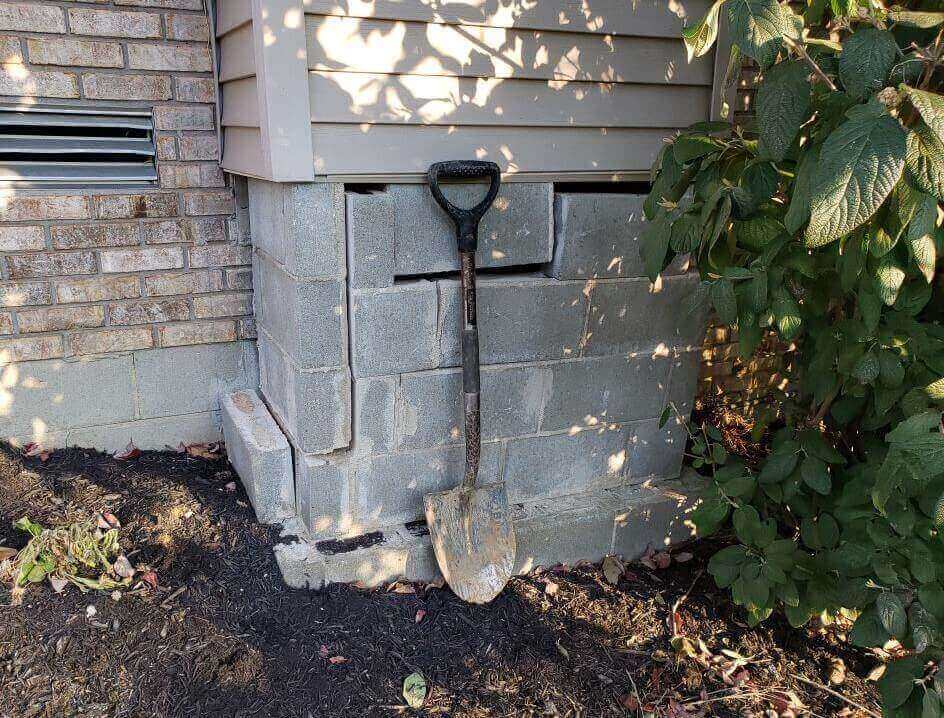How Long is a Lifetime Warranty on Your Home? It’s (Probably) Shorter Than You Think.

Originally posted 1/16/20; updated 10/22/20
Reality is a matter of perspective. Everyone has a different viewpoint, so how they see the world is filtered through the lens of their experiences. There are certain truths we all agree on- the sky is blue, the ocean is deep, and pineapple doesn’t belong on pizza. You’re probably thinking that we’re wandering off-subject right now; after all, what do subjective opinions have to do with warranties? Sadly, the answer is more than you might think.
Acculevel has been repairing foundations and waterproofing basements and crawl spaces since 1996. We’ve served thousands of customers and improved their homes, and we warranty our services. Like us, most other contractors and repair companies warranty their work. The length of those warranty periods, even lifetime warranties, does vary.
Defining a Lifetime Warranty
Stop for just a moment, and think about the word ‘lifetime.’ How would you define it? Now think about the words ‘lifetime warranty.’ If something has a lifetime warranty, how long do you expect it to be covered? As long as you live? As long as the company is in business? As long as the product is made?
Your answer may not match the ones we suggested. And it may not match the one your contractor uses, either. From a legal standpoint, there is no absolute definition that specifies how long a ‘lifetime’ warranty must last.
The Laws and Rules Around Lifetime Warranties
The only law that regulates warranties in the United States is the Federal Magnuson-Moss Warranty Act. This law regulates product warranties only. Companies are required to specify if a warranty is either full or limited and provide it- in writing- so a consumer can review it. But it does not determine or control the length of the warranty being offered, or define what length of time constitutes a ‘lifetime’.
Furthermore- and of great importance in our industry- warranties that cover replacement parts must comply with this act, but warranties on services do not. This means that service warranties are not regulated. The results of this are:
- Companies can decide how long to cover an installation.
- Companies can decide what limits are placed on the coverage.
- Companies can require certain conditions to be met, for coverage to continue.
What Does This Mean for Home Repair Warranties?
The repercussions of this are significant. A lifetime warranty can mean the life of the product; once a manufacturer stops making replacement parts, the warranty ends. It can also mean as long as a company is in business, or as long as you are the first owner.
Is the Warranty Transferable?
Many warranties are not transferable and end as soon as the original owner sells the product to someone else. This is why “as-is” is the standard for flea markets, resale shops, and yard sales.
Some others may be transferable- but only for a fee. The first owner has to notify the installation company, update them with the new owner’s info, and then either the buyer or seller must pay the transfer fee.
Is the Warranty Conditional?
A company can also stipulate that the warranty is good for “life,” (for whatever value that offers)- but only if you pay for them to perform an annual maintenance check or conduct a maintenance appointment.
If the Contractor is Part of a Franchise, Who Backs the Warranty?
Policies vary from one corporation to another. If you are working with a contractor who owns a local branch, you should ask them what happens if their business is bought by another contractor. Some nationwide companies will honor warranties provided by a franchise owner- but not all of them. There is a very real possibility that your warranty could be void, if that particular franchise closes or changes owners.
You should also ask how long that particular franchise has been open, and how long it has been under its current owner. This information will also help you determine how frequent the turnover is, and better assess how long your own warranty would be honored.
How Acculevel Warranties are Different
Acculevel provides a different kind of warranty. Most of ours are life of structure warranties; we cover repairs to our installations as long as your home is standing. This applies to helical piers, water drainage systems, carbon fiber straps, and wall anchors. Encapsulation service is warrantied for 25 years, slabjacking is for 5 years, and adjustable jacks are for 2 years.
All Acculevel warranties are fully transferable- free of charge- and none of them require annual inspections. We do offer an inspection plan after the installation is complete, but electing to not use this service has zero effect on your warranty’s status.
Questions You Should Ask
Before you sign a contract, make sure you read the fine print. We recommend asking- and verifying in writing- answers to the following questions.
- How long is the warranty valid?
- If the answer is ‘lifetime,’ how does that company define lifetime? Make sure you ask this second question- one company’s ‘lifetime’ may be for less time than the 25 year warranty offered by another.
- Is the warranty conditional- do I have to do anything to keep this warranty active and in effect?
- Are these covered or additional expenses? Add any additional costs to the quote amount, as it will come out of your pocket sooner or later.
- Is there anything not covered by the warranty?
- What are the exceptions or exclusions?
- If I need service, who will do the warrantied work?
- Do you outsource any of this work?
- If I sell my home, will the warranty transfer to the buyer?
- Are there any costs to make the transfer valid?
- How long has the company been in business? Verify this information with the Better Business Bureau, because some companies will use language like “combined years of experience” that can be misinterpreted. (According to the Small Business Association, 75% of all businesses fail within 15 years, while the average homeowner lives in a home for 13 years.)
- Ask what will happen to your warranty, if the franchise closes or is sold. Will a parent company or the national chain assume responsibility?
Do You Need Foundation Repairs or Waterproofing?
If so, you should find an experienced specialty company, and make an appointment. Before you sign a contract for any service, always verify the company is reputable, insured, and accredited by the Better Business Bureau.
If you live in Indiana or the surrounding states, contact Acculevel. Our warranties are clearly defined as either for a specific time period or are life-of-structure. All of our warranties are transferable without any additional charges, and none of them require that you meet additional conditions or pay for additional services.
We offer free estimates. An experienced project manager will evaluate the areas of concern and recommend the best course of action for you, to keep your home strong and healthy for years to come.
Feel free to use our guide to interview potential contractors. This article explains why you should ask these specific questions, gives our answers, and includes a free downloadable form.

